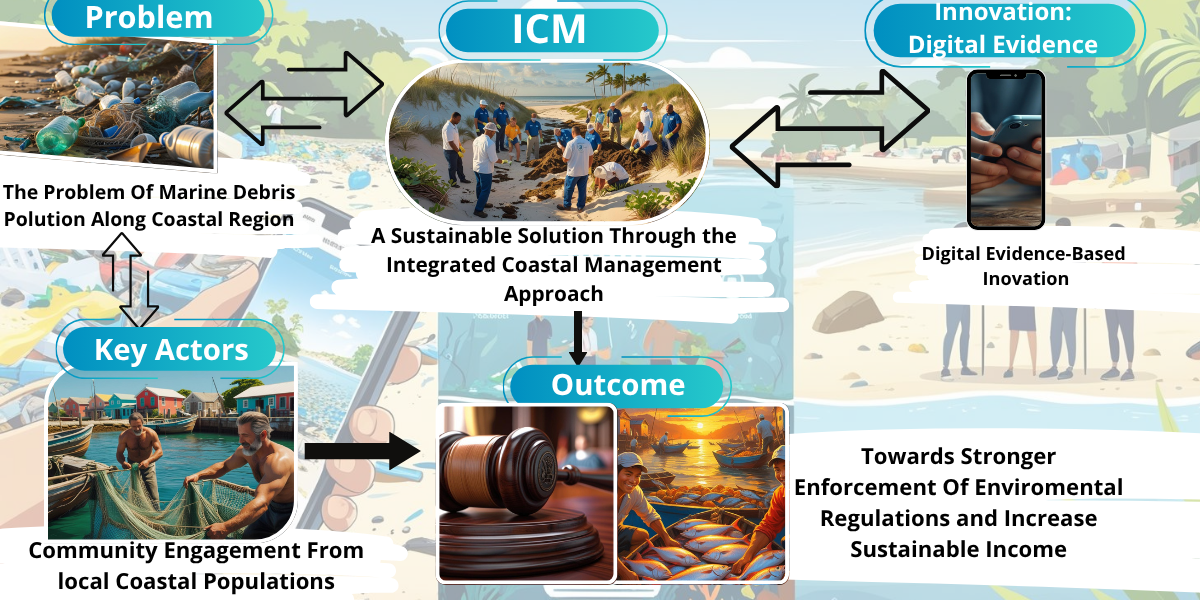
Marine debris pollution has become a major ecological and social challenge in Indonesia’s coastal areas, requiring approaches that go beyond technocratic or sectoral solutions. This study integrates the framework of Integrated Coastal Management (ICM) and Community-Based Development (CBD) with digital evidence and participatory governance to address weak law enforcement and limited community engagement in coastal West Sulawesi. Using a sequential explanatory mixed-methods design, the research combined quantitative surveys (32 items, Likert scale, Cronbach’s α = 0.82) with 250 respondents, qualitative interviews and FGDs with key stakeholders, and spatial analysis of drone imagery (~5 cm/pixel, 500 × 500 m grids, validated with ground surveys) collected over six months. Findings reveal that while 100% of respondents reported smartphone access, only a minority were aware of digital reporting for environmental purposes, indicating a significant gap between technological access and environmental digital literacy. Survey and spatial data also showed variations in marine debris accumulation, where some densely populated settlements maintained relatively clean coastlines due to strong local norms and social capital. Weak coordination between government agencies, the private sector, and oversight bodies further undermines effective law enforcement. In response, this study proposes a digital evidence–based ICM model, where communities document pollution through geo-tagged photos/videos, data are validated by multi-actor teams, and results feed into transparent dashboards to support environmental law enforcement and policy decisions. The findings highlight the potential of combining digital technology, participatory governance, and legal frameworks to strengthen ecological sustainability and social accountability. This model provides insights for replication in other archipelagic and coastal regions facing similar marine debris challenges.
Total file downloads: 13